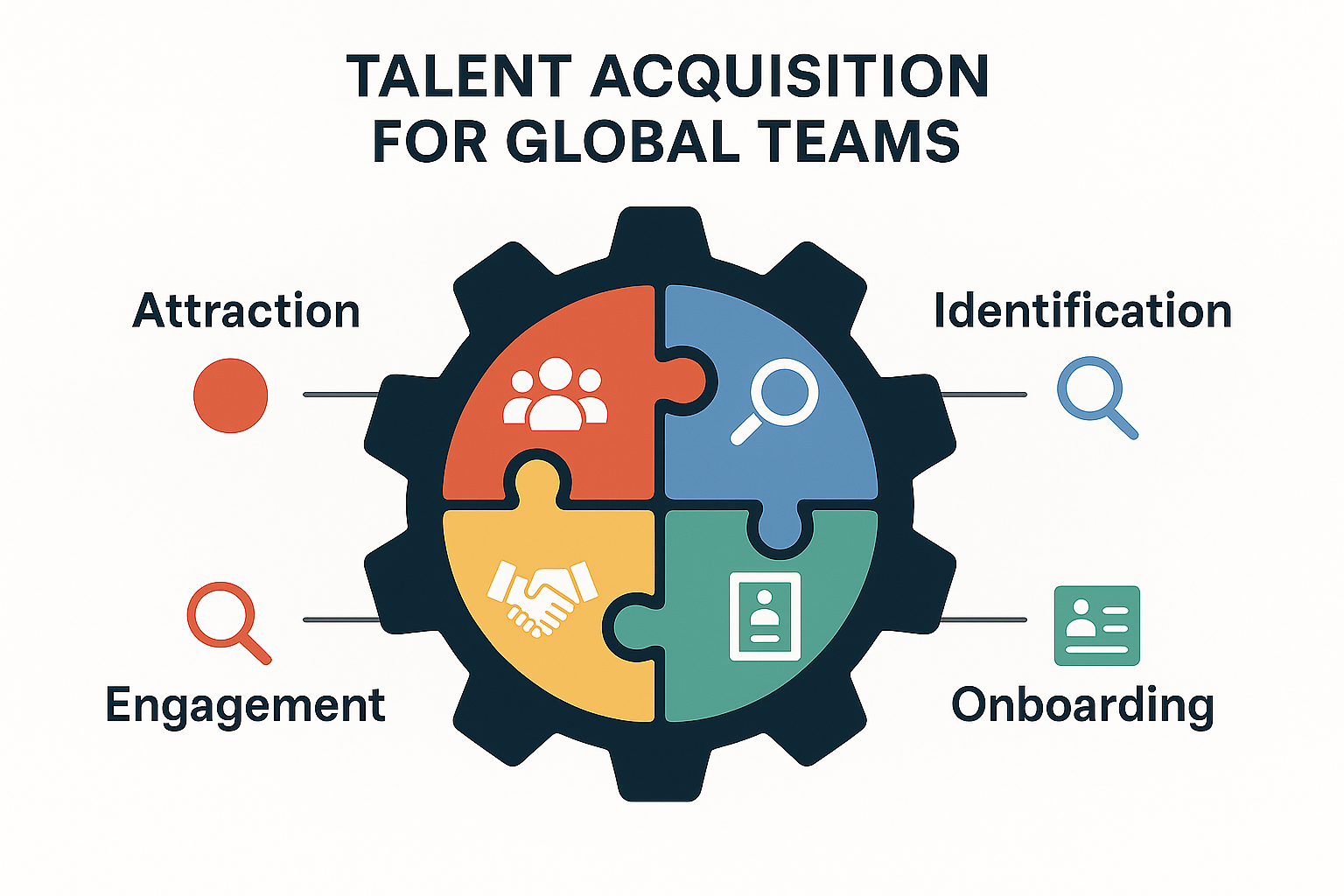Hiring across borders isn’t just about filling roles—it’s about building a cohesive, high- performing global culture.
The Strategic Shift in Talent Acquisition
As enterprises go global, the hiring mindset must evolve from ―cost arbitrage‖ to ―value creation.
Global teams aren’t just extensions—they’re core contributors to product innovation, scalability, and 24/7 operations.
Traditional hiring focuses on proximity, cultural familiarity, and uniformity.
Global hiring, by contrast, demands:
Distributed sourcing strategies
Multicultural alignment
Cross-border onboarding practices
And scalable remote-ready processes
Principles for Global Talent Acquisition Success
Hire for Collaboration, Not Just Competency
Global teams must self-manage, communicate asynchronously, and handle ambiguity. Look for:
Strong written communication
Experience in remote or multicultural environments
Proactive mindset over just technical skill
Diversify Talent Sources
Relying on one region (e.g., India or Eastern Europe) can limit innovation and resilience. Use platforms and partnerships to tap into:
Nearshore hubs (e.g., LATAM for North America)
Specialized tech cities (e.g., Krakow, Nairobi, São Paulo)
Remote-first freelancers or boutique firms
Tailor Your Employer Brand Globally
Candidates in different geographies value different things:
APAC: career growth and learning
EMEA: work-life balance and stability
LATAM: cultural inclusivity and remote readiness
Craft your EVP (Employee Value Proposition) to reflect regional priorities.
Building an Operationally Sound Hiring Engine
Local compliance: Understand labor laws, tax rules, and payroll systems per country
Remote onboarding: Use digital playbooks, buddy systems, and virtual immersions
Global equity and benefits: Avoid one-size-fits-all policies—balance fairness with localization
Use AI-driven sourcing tools: To match skills, culture, and availability at scale
Conclusion
Global talent acquisition isn’t about finding people who are willing to work remotely. It’s about finding the right people who can thrive remotely, across time zones and cultures, and contribute meaningfully to the business mission. Get this right, and your global team becomes a competitive advantage—not just an operational choice.





